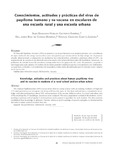
Please use this identifier to cite or link to this item:
http://ricaxcan.uaz.edu.mx/jspui/handle/20.500.11845/595Full metadata record
| DC Field | Value | Language |
|---|---|---|
| dc.contributor | 253332 | es_ES |
| dc.contributor.other | https://orcid.org/0000-0002-8619-2407 | - |
| dc.contributor.other | 0000-0002-8619-2407 | - |
| dc.creator | Centeno Ramírez, Alba Sanjuana Harlen | - |
| dc.creator | Ruiz de Chávez Ramírez, Dellanira | - |
| dc.creator | García Zamora, Pascual Gerardo | - |
| dc.date.accessioned | 2018-07-03T15:01:23Z | - |
| dc.date.available | 2018-07-03T15:01:23Z | - |
| dc.date.issued | 2016-10-10 | - |
| dc.identifier | info:eu-repo/semantics/publishedVersion | es_ES |
| dc.identifier.issn | 1665-3572 | es_ES |
| dc.identifier.uri | http://hdl.handle.net/20.500.11845/595 | - |
| dc.identifier.uri | https://doi.org/10.48779/5k72-5y46 | - |
| dc.description | The Human Papillomavirus (HPV) occurs most often in young women with an existing incidence of high risk HPV viral types known as oncogenic, tan those with low risk types. In this observational study, comparative knowledge, attitudes and practices about HPV and acceptance of its vaccine within in school in a rural and urban area of the municipality of Guadalupe, Zacatecas were analyzed. The study population contained 86 students corresponding to primary school grades 5 and 6 primary and a parent or guardian for each student. The data analysis established that knowledge is deficient. Practice, attitudes and knowledge of parents and girls are determined by the rural or urban context in which they live. | es_ES |
| dc.description.abstract | El Virus del Papiloma Humano (VPH) se presenta con mayor frecuencia en mujeres jóvenes con la incidencia de tipos virales de alto riesgo reconocidos como oncogénicos por encima de los de bajo riesgo. En el presente estudio observacional y comparativo se analizaron los conocimientos, actitudes y prácticas sobre el VPH y la aceptación de su vacuna en escolares de una zona rural y otra urbana del municipio de Guadalupe, Zacatecas. La población de estudio fueron 86 escolares correspondientes a los grupos de 5to. y 6to. de primaria y un padre o tutor legal para cada alumna. El análisis de los datos permitió establecer que los conocimientos son deficientes. Las prácticas, actitudes y conocimientos de los padres y niñas están determinados por el contexto rural o urbano en el que se vive. | es_ES |
| dc.language.iso | spa | es_ES |
| dc.publisher | Universidad de Guadalajara | es_ES |
| dc.relation | http://www.cucs.udg.mx/revistas/edu_desarrollo/anteriores/39/39_Ruiz.pdf | es_ES |
| dc.relation.ispartof | http://www.cucs.udg.mx/revistas/edu_desarrollo/ | es_ES |
| dc.relation.uri | generalPublic | es_ES |
| dc.rights | Atribución-NoComercial-CompartirIgual 3.0 Estados Unidos de América | * |
| dc.rights.uri | http://creativecommons.org/licenses/by-nc-sa/3.0/us/ | * |
| dc.source | Revista de Educación y Desarrollo, No. 39, octubre-diciembre de 2016. | es_ES |
| dc.subject.classification | MEDICINA Y CIENCIAS DE LA SALUD [3] | es_ES |
| dc.subject.other | Infección sexual | es_ES |
| dc.subject.other | Adolescentes | es_ES |
| dc.subject.other | Vacunas | es_ES |
| dc.title | Conocimientos, actitudes y prácticas del virus de papiloma humano y su vacuna en escolares de una escuela rural y una escuela urbana | es_ES |
| dc.type | info:eu-repo/semantics/article | es_ES |
| Appears in Collections: | *Documentos Académicos*-- M. en C. de la Salud | |
Files in This Item:
| File | Description | Size | Format | |
|---|---|---|---|---|
| Articulo VPH Alba Sanjuana Harlen.pdf | 349,21 kB | Adobe PDF |  View/Open |
This item is licensed under a Creative Commons License
